Time reading skills Extra Challenge Worksheets for Ages 5-8
5 filtered results
-
From - To
Boost your child's time-telling abilities with our "Time Reading Skills Extra Challenge Worksheets for Ages 5-8." Tailored for young learners, these engaging worksheets provide challenging exercises to enhance their proficiency in reading both analog and digital clocks. Perfect for kids who are ready for an extra challenge, our activities range from identifying hours and minutes to solving word problems involving time. With colorful, kid-friendly designs and progressive difficulty levels, these worksheets make learning to tell time fun and effective. Transform your child's time-reading skills with these expertly crafted resources from Kids Academy. Start today and watch them master the clock!
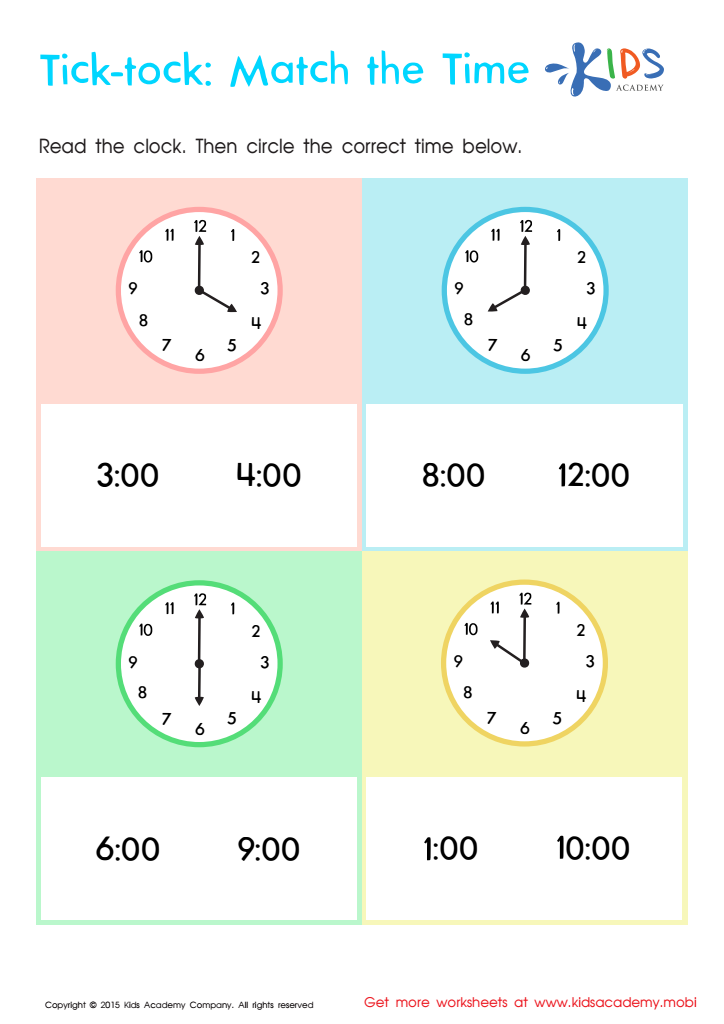

Telling The Time Worksheet: Part 4
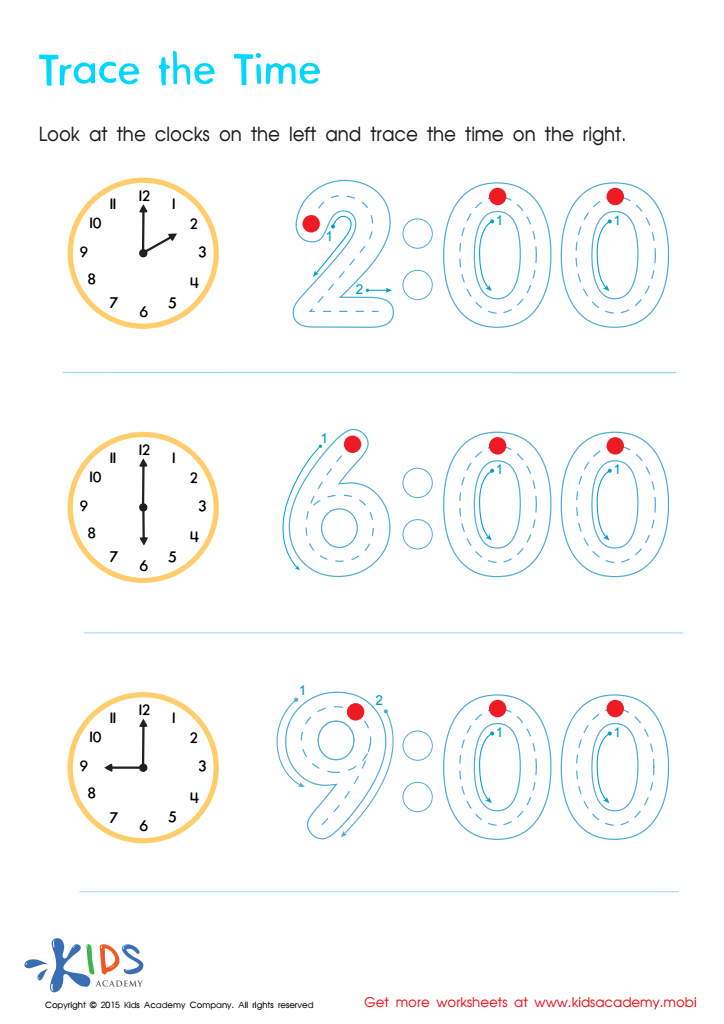

Telling The Time Worksheet: Part 2
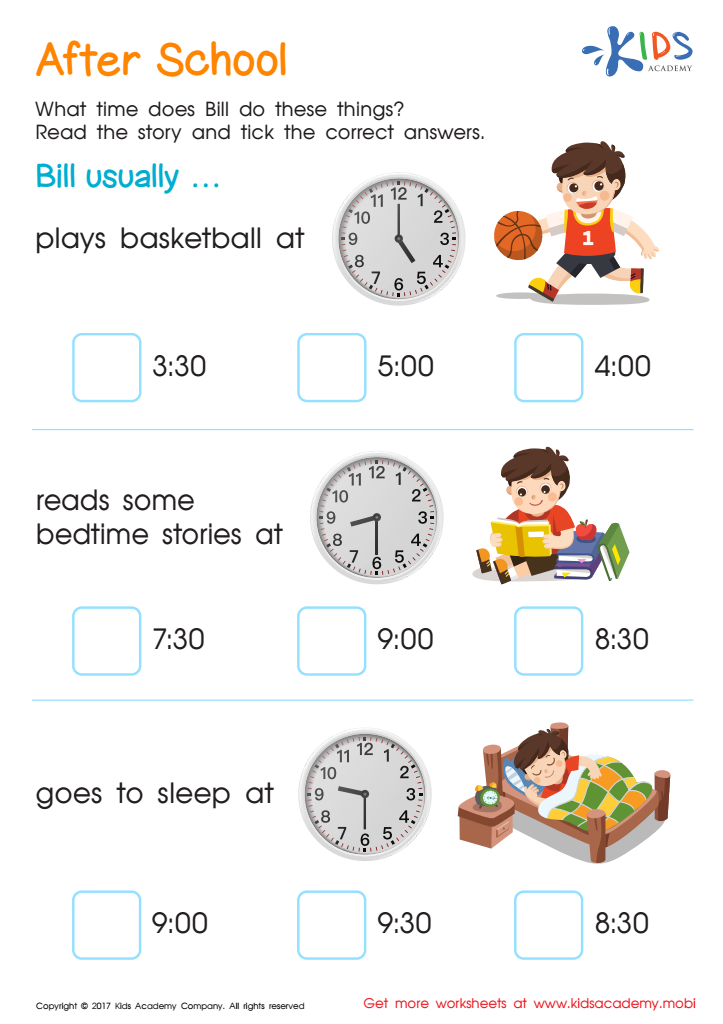

After School Time Printable
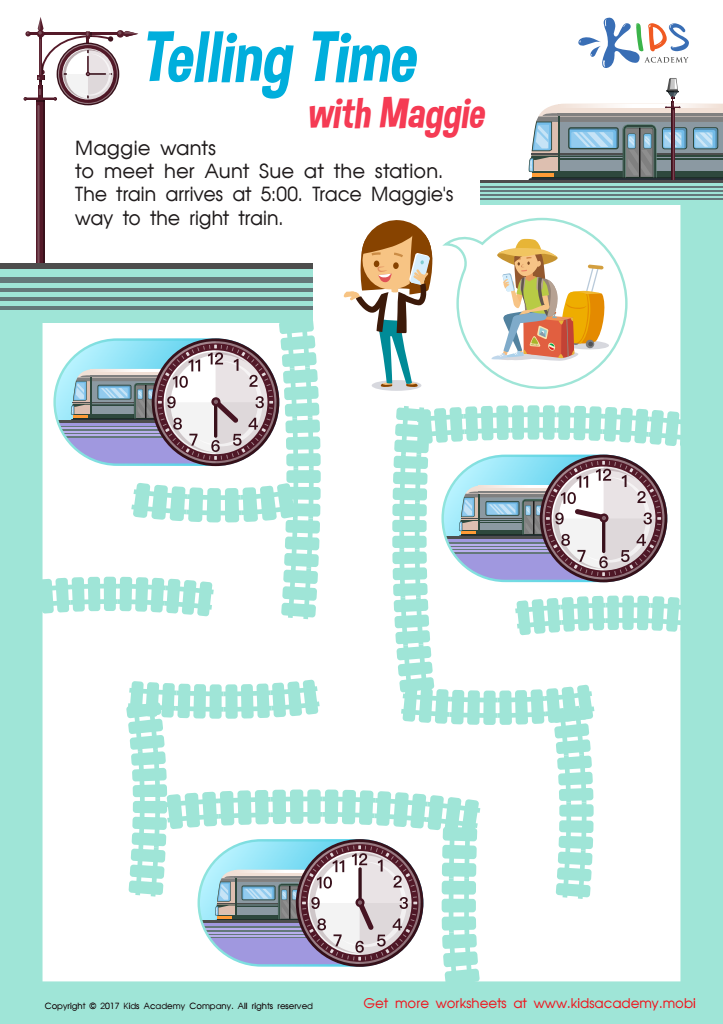

Telling Time With Maggie Time Worksheet
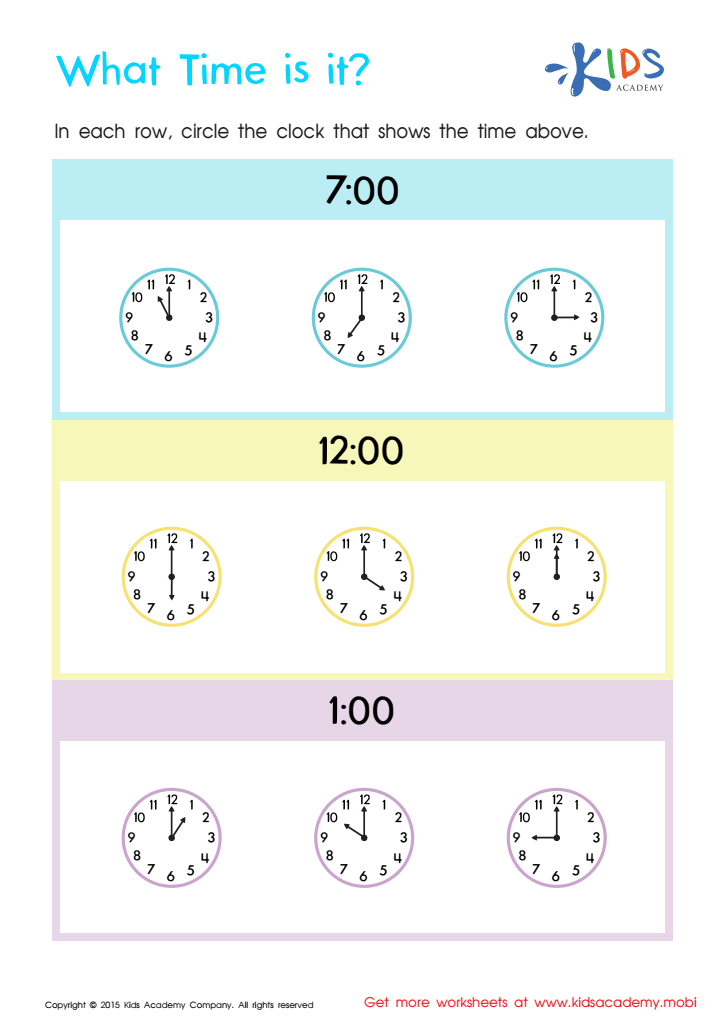

Telling The Time Worksheet: Part 3
Parents and teachers should prioritize enhancing time reading skills for children aged 5-8 because mastering this ability forms the bedrock of essential life skills. Time-telling is not only crucial for daily routines, but it also strengthens mathematical concepts, reinforces reading comprehension through interpreting schedules, and improves overall cognitive flexibility.
At this formative age, children's brains are wired for absorbing new skills rapidly. Developing time reading skills stimulates brain areas associated with problem-solving, logical thinking, and sequencing. These foundational skills pave the way for academic success, particularly in STEM fields, fostering strategic thinking and organization.
Moreover, time management becomes more tangible when children understand how to read clocks. With this knowledge, children can grasp the concept of minutes and hours, making it easier for them to manage transitions between activities, comprehend the structure of their day, and develop punctuality. Such skills promote self-discipline and responsibility, which are crucial traits for their future educational journey and social adaptability.
An extra challenge in time reading skills not only sharpens their proficiency but also boosts their confidence and motivation. When children experience challenges tailored to their developmental stage, they perceive learning as a rewarding adventure rather than a task, thereby fostering a lifelong love for learning and continuous improvement.
 Assign to My Students
Assign to My Students





















